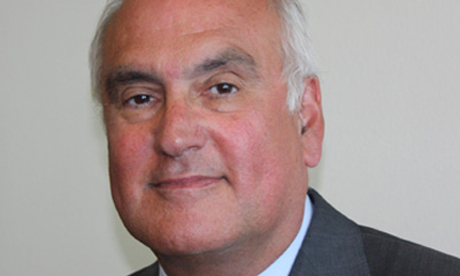Teachers call for resignation of Mossbourne ex-head Sir Michael Wilshaw

Under attack: Sir Michael Wilshaw, former head of Mossbourne Academy
The founding headteacher of Hackney’s Mossbourne Academy, Sir Michael Wilshaw, should resign as Chief Inspector of Schools, says a teaching union.
At their annual conference this weekend, the National Union of Teachers (NUT) also called for a boycott of school inspections.
Jamie Duff of Hackney NUT, which represents 1,800 teachers in the borough, said: “[Sir Michael] Wilshaw made his name as the head of Mossbourne so we at the Hackney NUT are more than familiar with his dubious methods.
“He continues to demoralise teachers, which will only further undermine the profession. This is a deliberate strategy adopted in order to facilitate the creeping privatisation and deregulation of state education. Oftsted is a tool of the Department for Education (DFE) – he is doing Gove’s dirty work.
“His use of negative rhetoric about schools and teachers is deplorable. The attrition of dedicated and committed staff by the current Ofsted approach must stop . We fully support the vote of no confidence in the head of Ofsted and call on Michael Wilshaw to resign.”
Indeed, the annual teachers’ union conference season has brought a wave of criticism towards Sir Michael Wilshaw, and also Education Secretary Michael Gove.
The National Association of Schoolmasters Union of Women Teachers (NASUWT) at their annual gathering, has called for a reform of OFSTED, or failing that want its abolition.
And at their annual event last month, the Association of Teachers and Lecturers (ATL) voted that Wilshaw himself should be put in ‘special measures’.
Speaking after the vote was passed, ATL general secretary Dr Mary Bousted said: “Michael Gove and Sir Michael Wilshaw are like blood brothers with a pact to suck the life and hope out of our education system and the teachers who work within it.”
Sir Michael Wilshaw’s hard-nosed approach to education won him both praise and scorn.
Fans appreciate his strict discipline model, while critics rail at his ‘boot camp’ management style.
Wilshaw’s tenure at Mossbourne has served as the national mascot for the academies programme.
These fresh criticisms have ensured he will remain controversial in his new role as Chief Inspector of Schools, which he has held since 2012.
Since then he has scrapped the “satisfactory” rating for schools on the basis that all passing schools should be rated “good” or “outstanding.”
Wilshaw’s harsh rhetoric has left a bad taste in many teacher’ mouths. He once advised head teachers that “If anyone says to you that ‘staff morale is at an all-time low’ you know you are doing something right.”
Comments like this have “upset and angered a lot of teachers in Hackney” says Jamie Duff, of the Hackney NUT, and are disrespectful to the the profession.
The NUT’s General Secretary Christine Blower said teachers live in “constant fear of inspections” at the expense of “teaching and learning”.
She complained that many inspectors lack classroom experience, yet their high-stakes evaluations can result in schools being forced to accept academy status.
Calling for an overhaul of the inspections system, she suggested instead a “rigorous system of school self-evaluation with light touch external moderation.”
The survey of the ATL’s 996 members also showed that 91 per cent rated both him and Michael Gove a ‘fail’.
The vote of no confidence was passed on 25 March. It is the first motion of its kind in over a century.
The two Michaels (Wilshaw and Gove) were criticised by the ATL for an “abject failure to improve education or treat teachers, parents and pupils with respect”.
And this is from a union that is generally considered to be one of the more moderate teacher’s unions.
NASUWT and the National Union of Teachers (NUT) – which represent 9 out of 10 teachers — have jointly promised a wave of strikes starting in the North West of England in June, under their campaign to Protect Teachers and Defend Education.
If the Government does not engage with their demands for nationally-agreed pay and conditions, pensions, and workload for teachers, the strikes could cause a national disruption.
The last teacher’s strike in March 2013 saw the majority of Hackney schools closing for a full school day over a pensions row.
Changes to teacher pay conditions – moving toward performance-based pay, and changes in the exam system, are central to the unions’ criticisms.
Teachers have to “work longer and get less” for their pensions, according to Jamie Duff.
In response to the criticisms, the Department for Education said: “We need to make sure we have an education system that is robust and rigorous” to ensure England’s education provision remains competitive globally.
Parents expressed similar concern in a survey published by the pollster YouGov and the NUT. The survey of 2,008 parents showed that only 8% of believe that the Government has made a positive impact on the education system.
Note: this article was updated at 10.30am Tuesday 2 April 2013 with a comment from Jamie Duff, Hackney NUT spokesperson.
